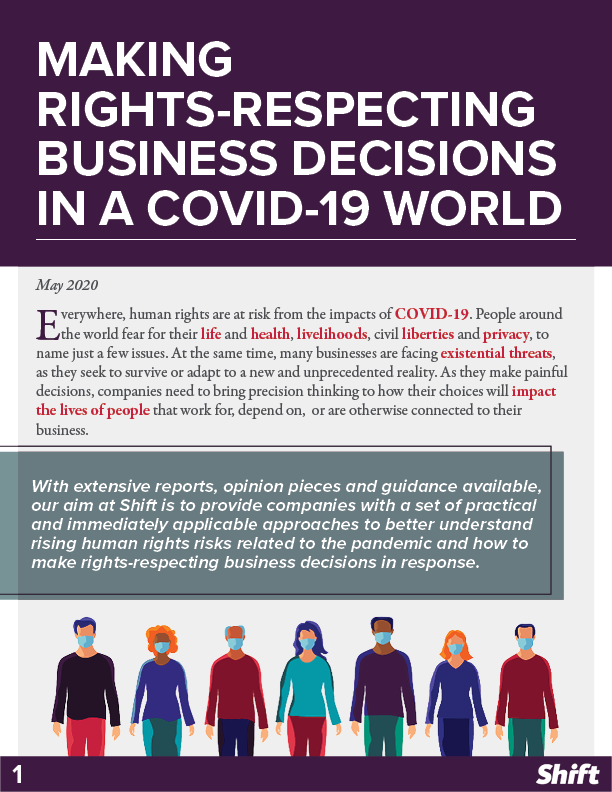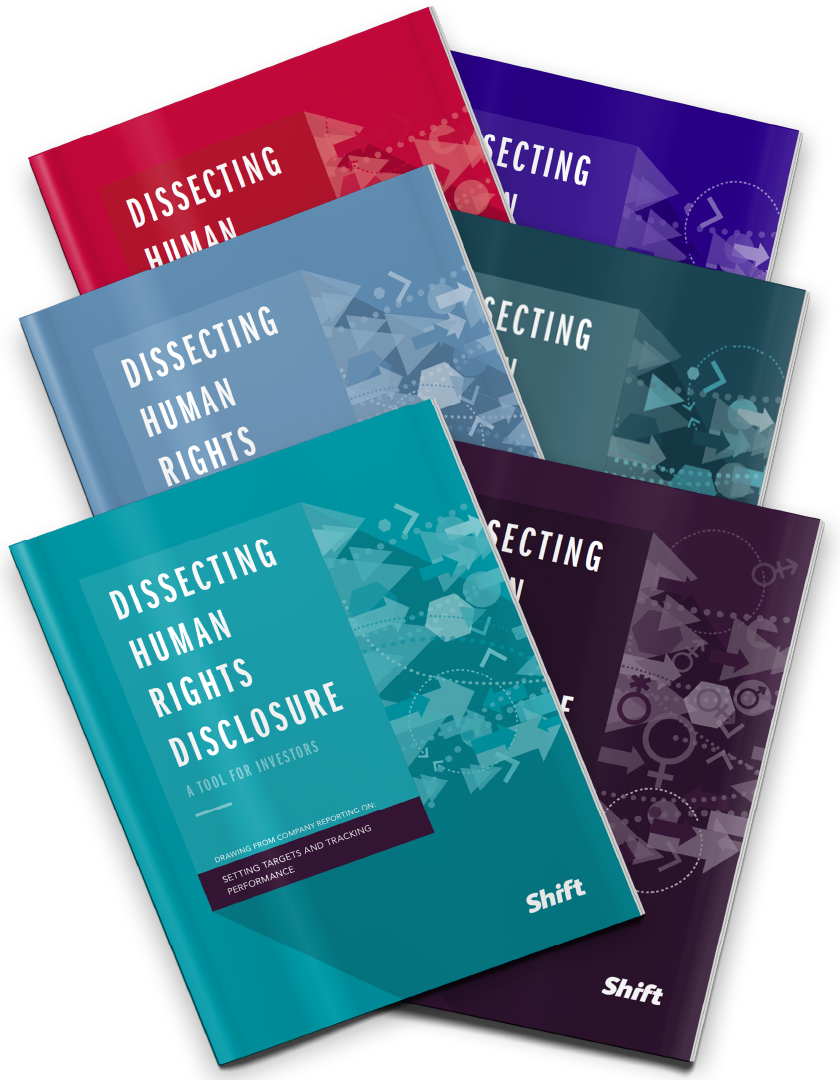Summary
This report provides an analysis of corporate reporting related to human rights from October 2013 to March 2014. Since that time, corporate reporting has further evolved. To see more examples of corporate reporting on human rights, we suggest exploring the many companies listed in the UN Guiding Principles Reporting Database. For examples of good corporate reporting on human rights, we recommend reading Examples of Good Reporting on the UNGP Reporting Framework website.
The underlying research for this report was commissioned by Shift to build understanding of how leading companies across different sectors currently report on their human rights performance, and how this disclosure relates to the UN Guiding Principles on Business and Human Rights. The research was desk-based, using the information publicly reported during the period from October 2013 to March 2014 (or earlier) by the 43 companies in the research sample.
The findings summarized here indicate that many companies already disclose information about their human rights performance in relation to the key components of the corporate responsibility to respect human rights, as set out in the UN Guiding Principles. However, most disclosure on human rights is at present limited to relatively general statements about process, with little information disclosed about how these relate to specific risks or impacts, or company responses to them.
That said, examples included within the research sample also illustrate that fuller and more specific disclosure on human rights performance is feasible. Companies whose disclosure is excerpted in this report include Rio Tinto, Nike, Gap Inc., HP, Anglo American, Ford Motor Company, PVH, Timberland, Nestlé, Coca-Cola Company and AngloGold Ashanti.
General trends identified within the research sample are as follows:
- The majority of companies in the research sample have committed to the corporate responsibility to respect human rights and publicly disclose this commitment in a stand-alone Human Rights Policy, Code of Business Conduct, Supplier Code, or other company-provided statement.
- Many companies are reporting on human rights due diligence, although often providing information in high level statements rather then explaining their processes for implementing their commitment to respect for human rights.
- Many companies are disclosing information about Assessing Impacts, Integrating & Acting, and the importance of Grievance Mechanisms. However, companies are typically disclosing that they acknowledge the importance of these principles and do not necessarily provide further information about their specific processes and programs.
- Often, the most detailed disclosure within a report is related to disclosure on supply chain contexts. This information typically relates to tracking performance and details of compliance audits.
- Many companies disclose information about stakeholder engagement processes. However, they often describe processes that are led by corporate headquarters. Few companies disclose evidence of how they engage affected stakeholders in their processes for assessing impacts or tracking the effectiveness of actions taken.
- The companies’ with the strongest disclosure in the research sample were fairly evenly divided between European- and North American-headquartered companies.
- The European companies tended to have stronger disclosure about their human rights policy commitment and overall human rights due diligence processes, while the North American companies were stronger in disclosure about how they integrate and act on the impacts they identify and track their performance, albeit with a strong emphasis on supply chains.
- Regarding sectoral trends, the companies with the strongest disclosure tended to be in the extractive sector, followed by those companies whose disclosure focuses primarily on supply chain impacts – notably (and in order) the apparel; food, beverage and agriculture; and ICT sectors.




